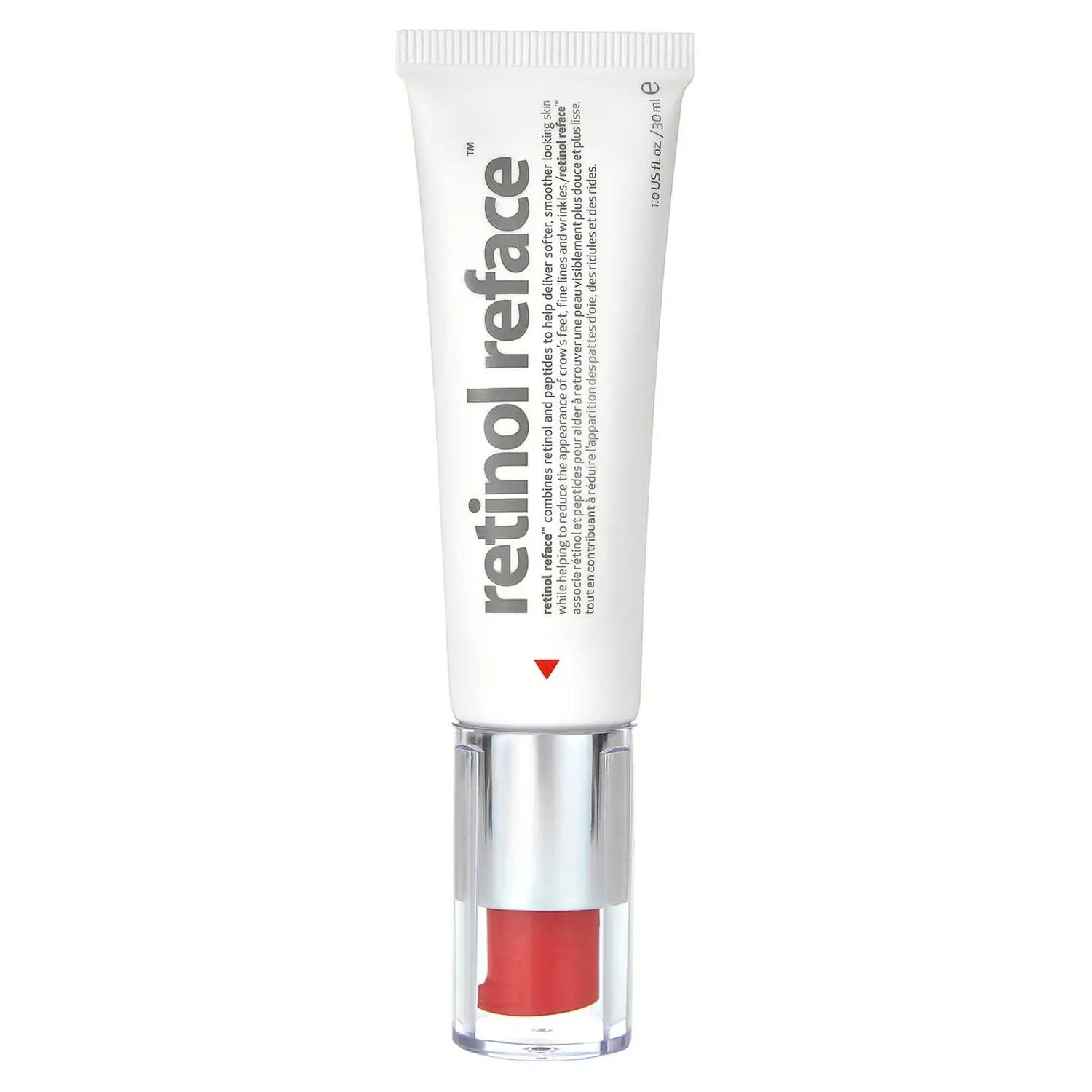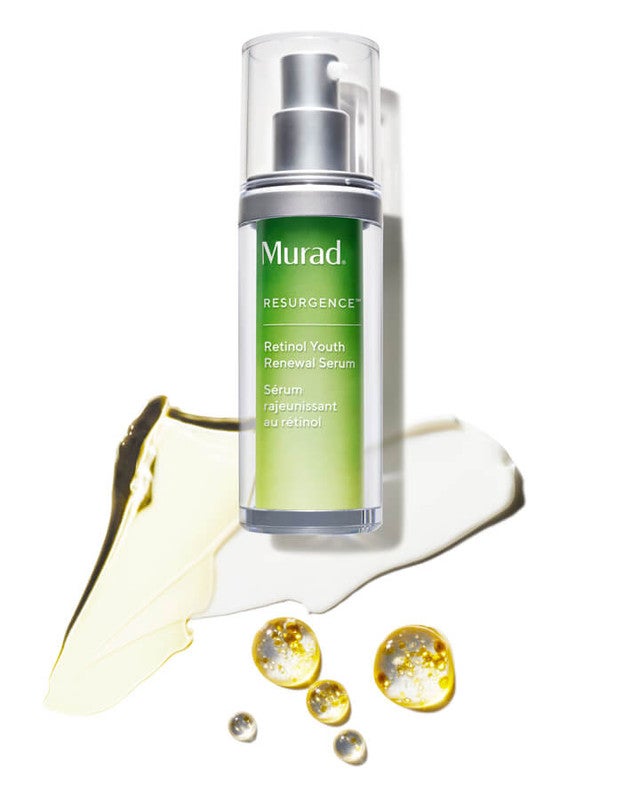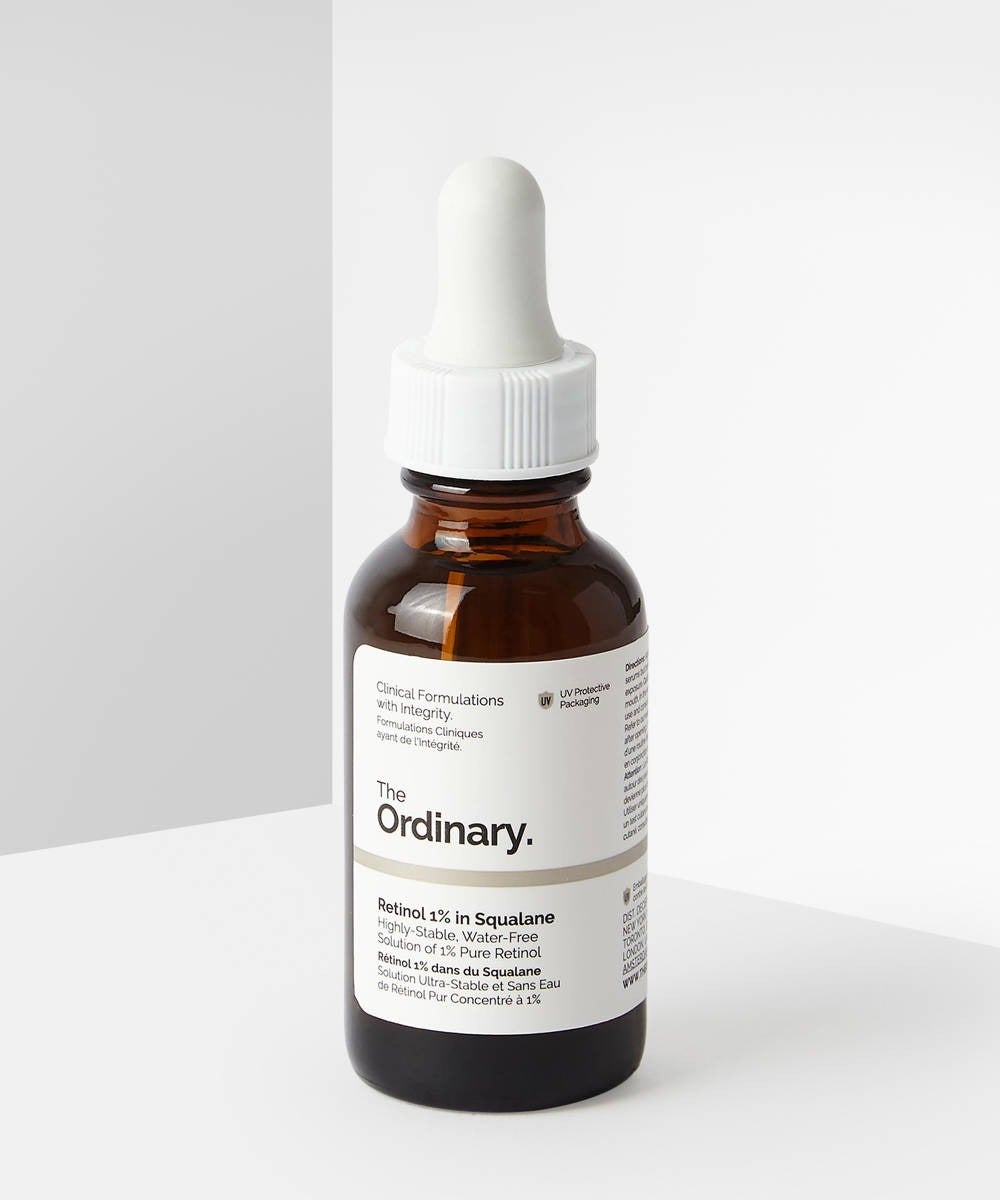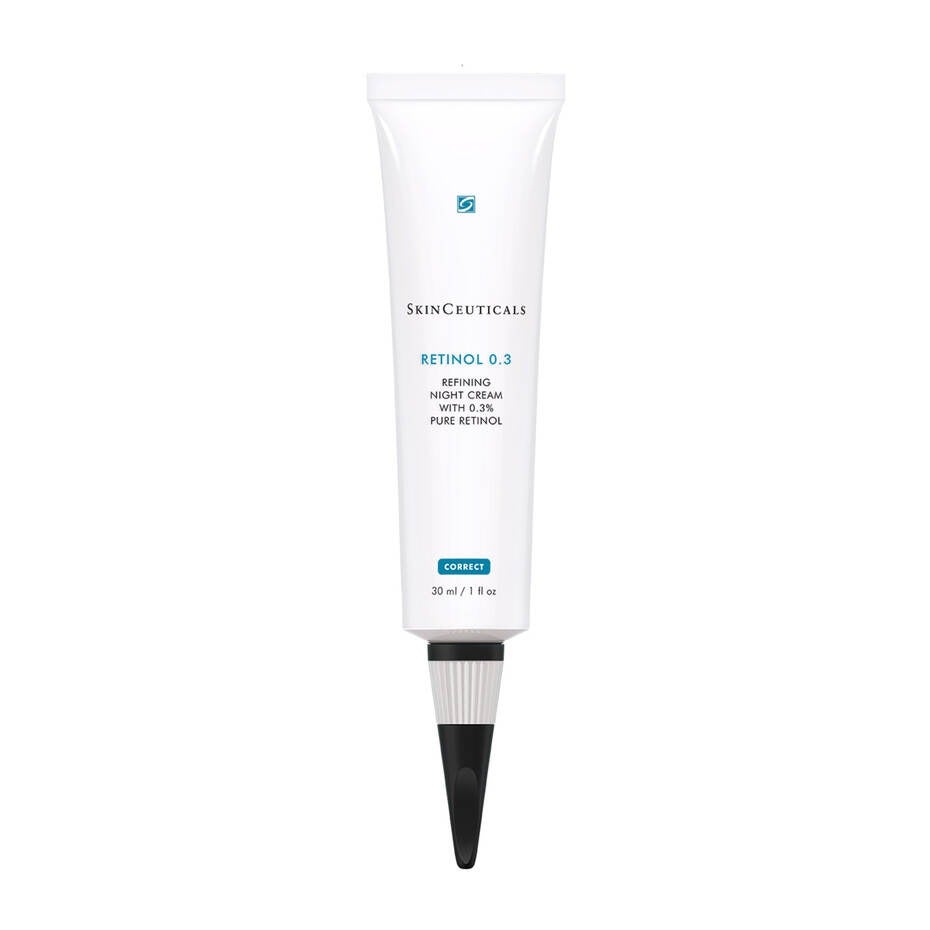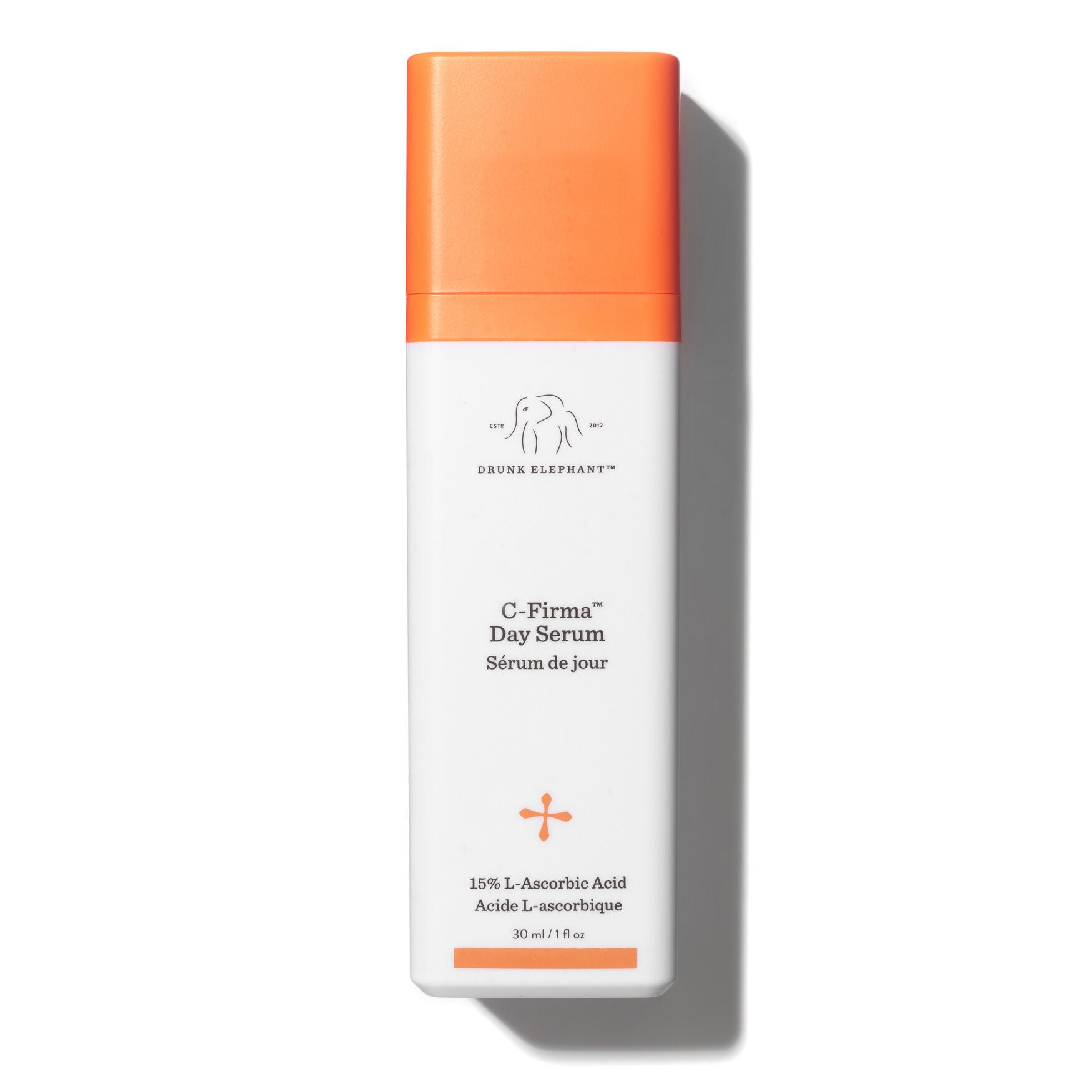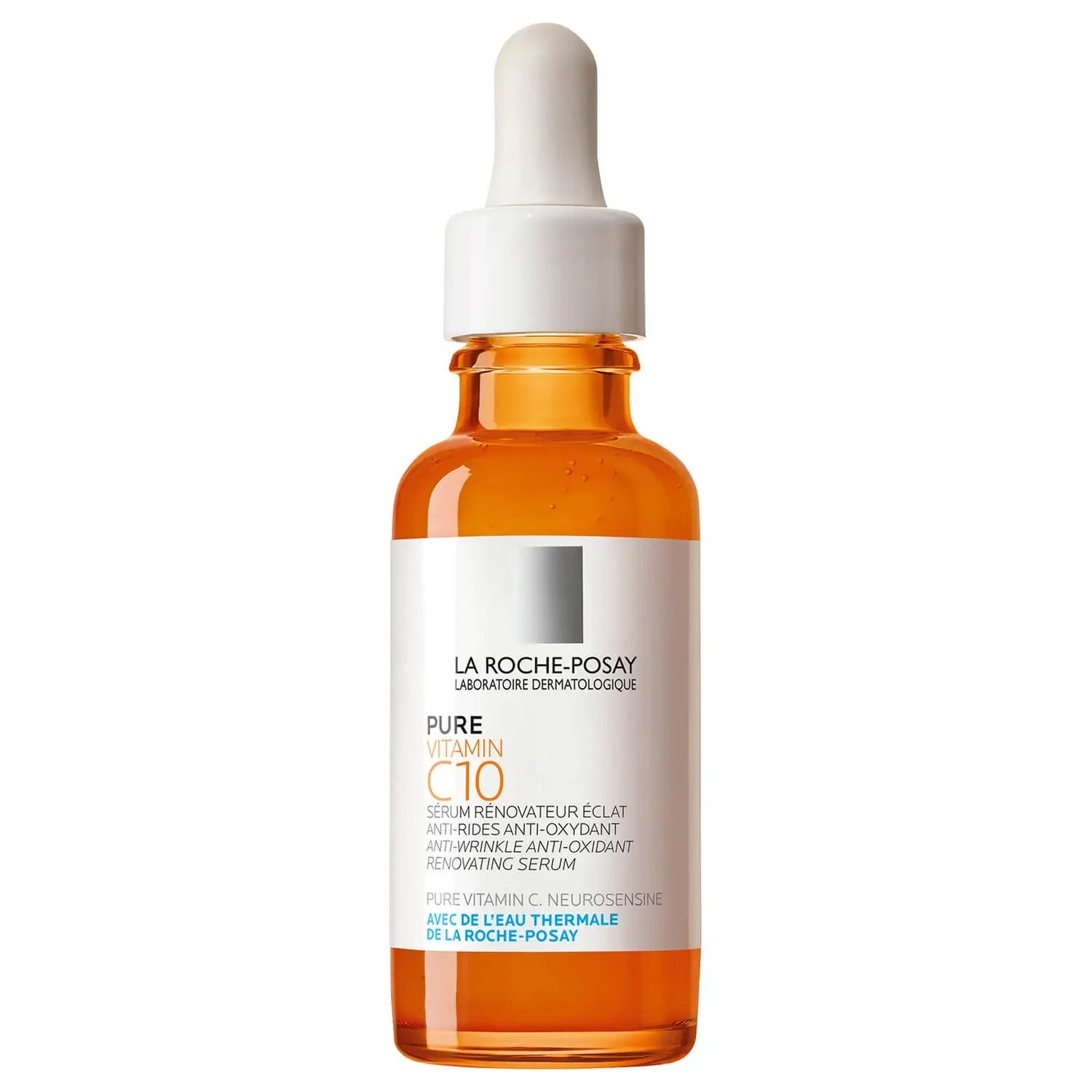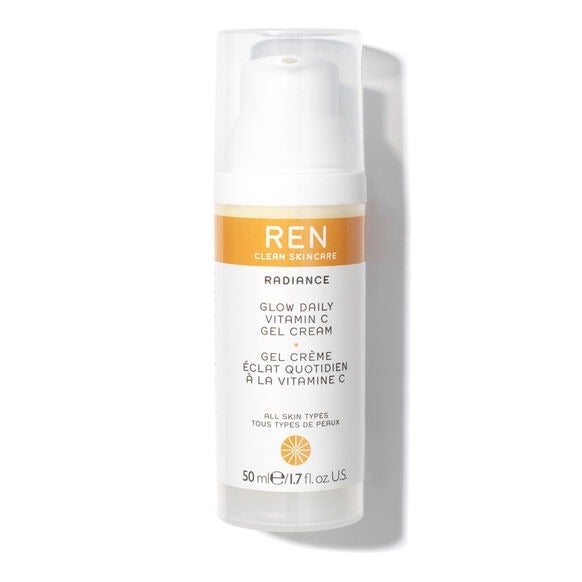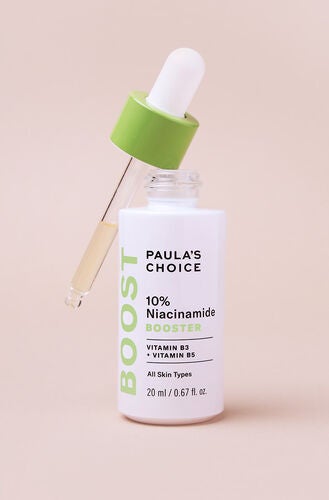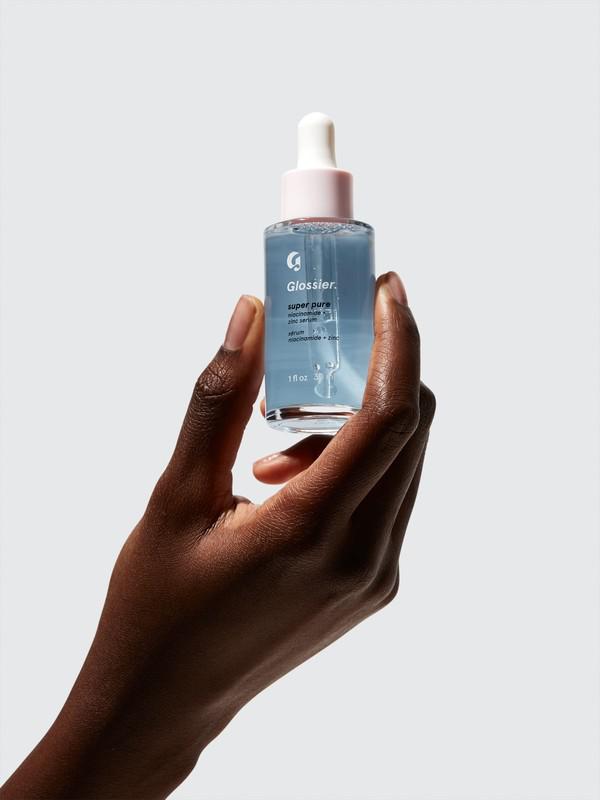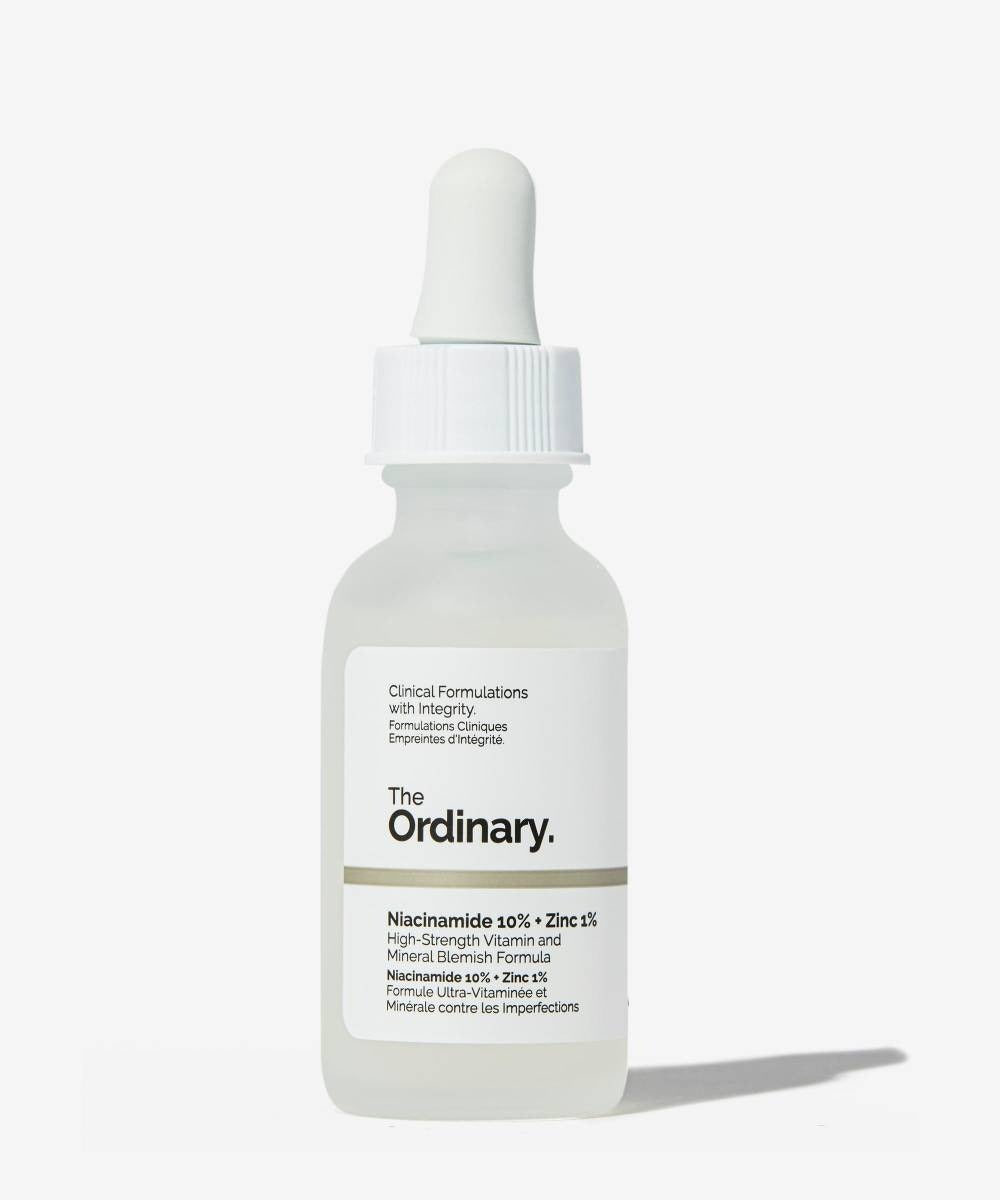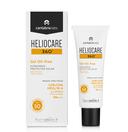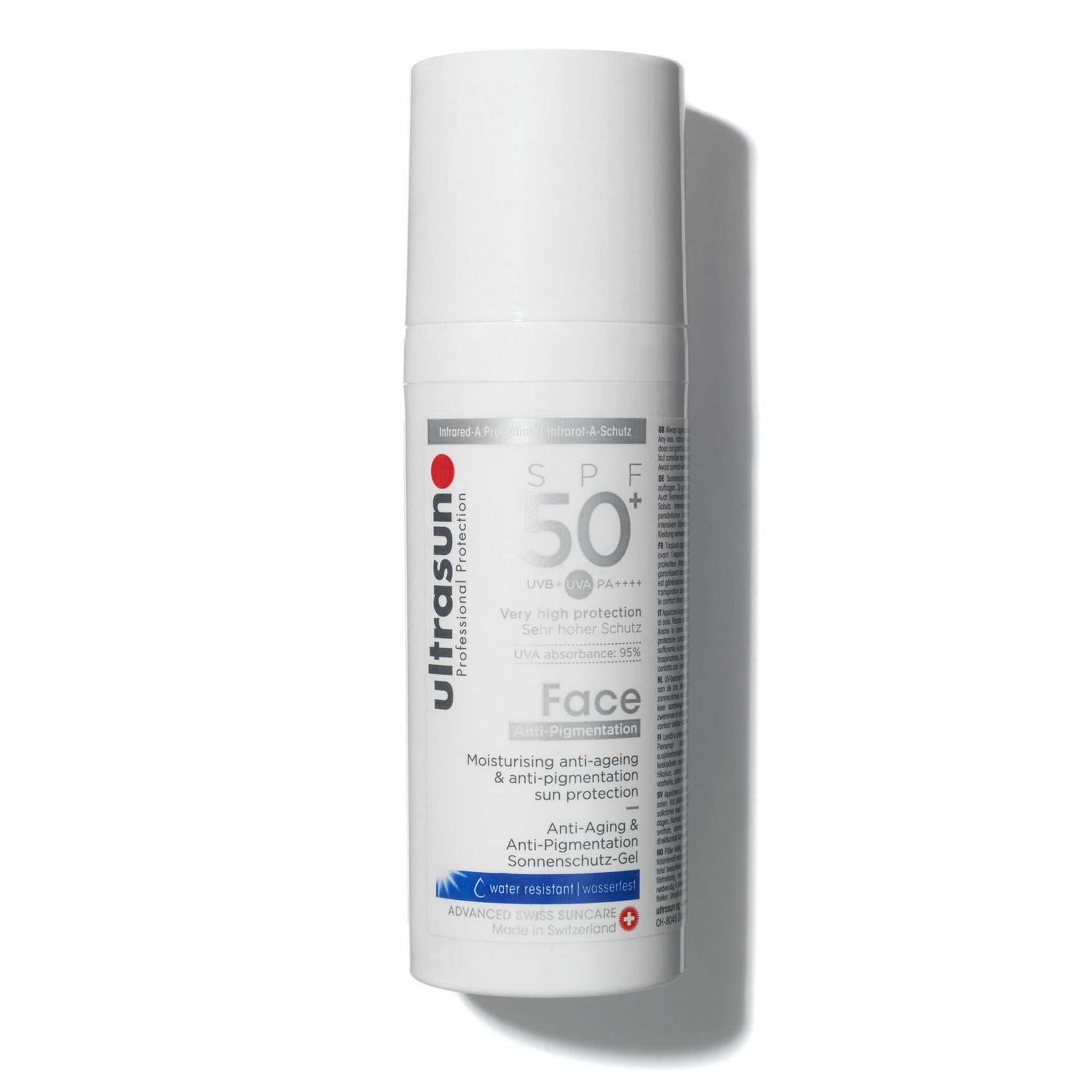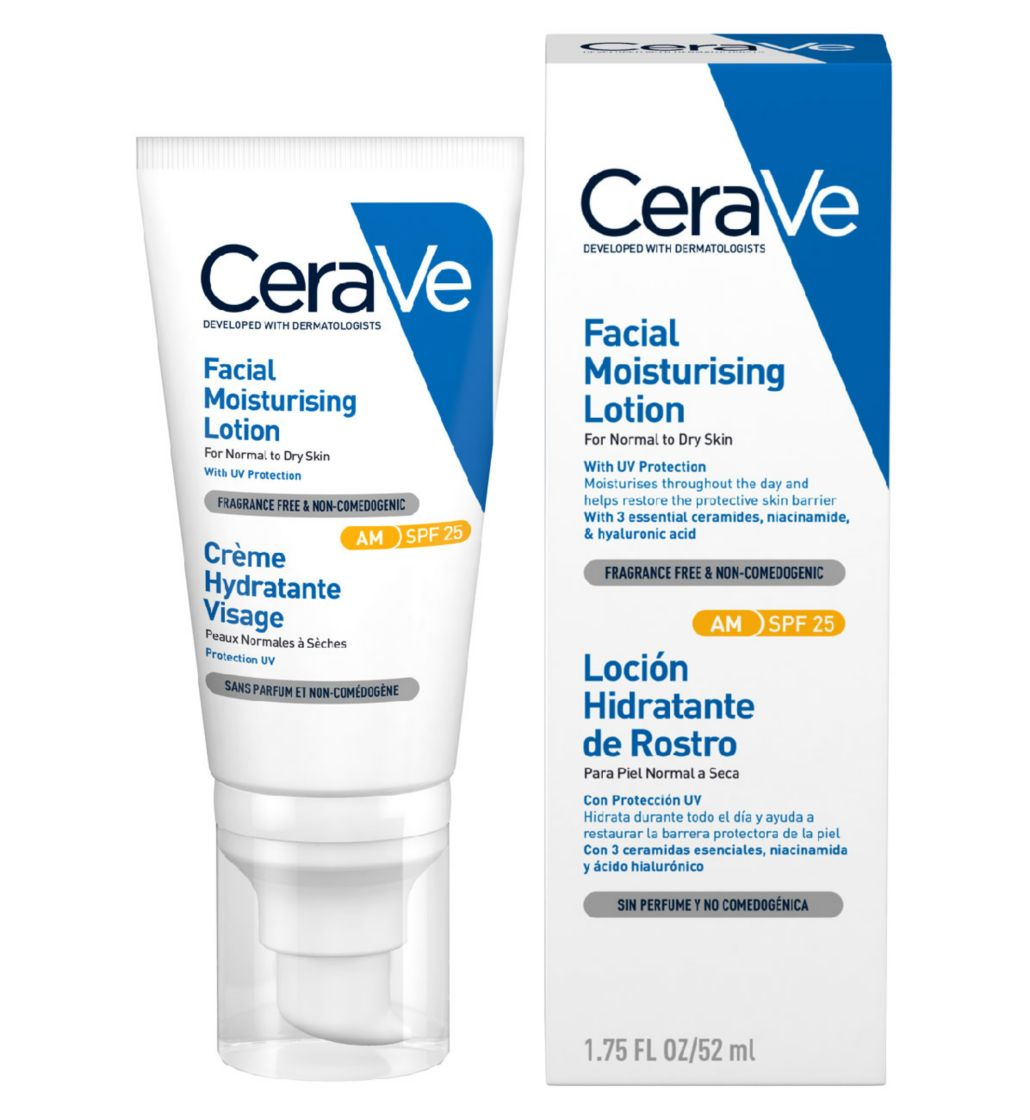You’re Wasting Money On Skincare Ingredients That Don’t Go Together
Photographed by Caroline Tompkins
Thanks to a wide variety of affordable skincare brands which focus on science and efficacy (such as The Ordinary, The Inkey List and new line Q+A), skincare has become something of a fun chemistry lesson.
But now that we can easily get our hands on a plethora of buzzy skincare ingredients like niacinamide, hyaluronic acid and zinc, and mix and match them to suit our skin's needs, it can be all too easy to go overboard and combine the wrong ingredients. Of course, some skincare ingredients work harmoniously but there are some that cancel each other out (rendering them totally useless) or, worse, may leave your skin feeling stressed and sore.
AdvertisementADVERTISEMENT
Dr Sivanie Sewell, consultant dermatologist and British Skin Foundation spokesperson concurs. "Mixing skincare ingredients incorrectly can cause skin irritation and dryness. It can also counteract the benefits of certain ingredients thus making them ineffective and ultimately a waste of money. On the other hand, mixing skincare ingredients correctly can result in tackling multiple skin concerns effectively (whether you're dealing with acne or pigmentation, for example), help counteract the unwanted side effects of certain ingredients (such as retinol and acids) and help some ingredients work synergistically, thus enhancing their effects."
There are some things you need to remember. "It's important when mixing skincare ingredients that you are confident you have the knowledge needed to do it correctly and effectively," adds Dr Sewell. "If not, consider consulting a consultant dermatologist." Websites such as Paula's Choice, Deciem's Online Chat and The Inkey List's #askINKEY service are also helpful for decoding ingredients. With the help of Dr Sewell, we've put together a beginner's guide to the dos and don'ts of mixing skincare, so that you can get the very best out of your products.
Retinol
Retinol is a wonder ingredient when it comes to ageing, acne, pigmentation and more. "Also known as vitamin A, retinoids work by stimulating and reducing the breakdown of collagen, boosting elastic tissue, increasing healthy skin and inhibiting pigment formation. It also helps reduce fine lines and improves skin's firmness," says Dr Sewell. It pays to be patient, though, as Dr Sewell says it takes six to 12 months of consistent use to see results.
AdvertisementADVERTISEMENT
Do mix: Retinol with ingredients such as hyaluronic acid, niacinamide and SPF. The latter is a must, as retinol can make skin sensitive to sunlight.
"If you have sensitive skin, you should start off by using a very low strength retinol e.g. 0.1 or 0.2%, which is generally better tolerated," says Dr Sewell. It has lower side effects and is less likely to irritate your skin. Dr Sewell adds: "Increase how often you use it very gradually and reduce how often you use it if you develop skin irritation (such as redness or tenderness) and dryness."
Try two to three times a week at first, and always use it in the evening. "Using hyaluronic acid and a moisturiser (particularly one that includes ceramides and glycerin or niacinamide) 15 minutes after using retinol can also help counteract the unwanted side effects," adds Dr Sewell.
Don't mix: Retinol with vitamin C, benzoyl peroxide (BPO) or alpha and beta hydroxy acids, otherwise known as AHAs and BHAs (glycolic acid and salicylic acid). Layering these products one after the other could cause irritation. If you do want to use vitamin C in your skincare routine, apply it in the morning and use retinol at night. The best way to use acids alongside retinol would be to alternate them each evening (one evening using retinol, another evening using a leave-on acid exfoliator followed by moisturiser). If your skin is very oily and acne-prone, you could also use an acid-based cleanser before retinol, which will be rinsed off. Try Medik8 Pore Cleanse Intense, £21. It exfoliates gently over time.
AdvertisementADVERTISEMENT
Vitamin C
Also known as ascorbic acid, vitamin C is a powerful antioxidant. It helps shield against UV and infrared radiation, as well as environmental pollution to prevent pigmentation and inflammation aka redness.
Do mix: Vitamin C with vitamin E and ferulic acid. Both are also antioxidants and boost the skin's protective shield when teamed with vitamin C. Always follow your vitamin C serum with SPF, too. Dr Sewell adds: "Vitamin C is best applied in the morning. It oxidises easily and becomes less effective, so it's important to choose a stable vitamin C product from a reputable brand." R29 rates Drunk Elephant, REN and La Roche-Posay.
Don't mix: Vitamin C + AHAs or BHAs, retinol or benzoyl peroxide immediately on top of each other. If you want to use vitamin C with the above, apply it in the morning and use the rest at night.
Niacinamide
Dubbed the new wonder ingredient in skincare, niacinamide has multiple benefits. Otherwise known as vitamin B3, it absorbs easily, protects skin from environmental stress, reduces excess oil production (potentially preventing spots), improves skin hydration and strengthens the skin's barrier, keeping dryness at bay. "In turn, this boosts elasticity of the skin and helps improve fine lines, wrinkles and the appearance of pores," says Dr Sewell.
Do mix: With any active skincare ingredient. Dr Sewell says: "Niacinamide is suitable for anyone who wants to address acne, pigmentation, hydration and reducing dark spots and redness." Niacinamide usually comes in serum form.
AdvertisementADVERTISEMENT
Don't mix: While Dr Sewell argues that mixing niacinamide with vitamin C won't do the skin any harm, it is a debated topic within the skincare industry. Prudvi Kaka, chief scientific officer at Deciem, told R29: "Niacinamide has the potential to affect the integrity of vitamin C," essentially making it less potent. "When combined, this may cause a chemical discolouration of the product and increase the chances of developing facial flushing," adds Prudvi. If you're worried, use vitamin C in the daytime and apply a niacinamide serum at night.
Benzoyl peroxide
Benzoyl peroxide (BPO) is an organic peroxide. It treats and prevents acne by penetrating hair follicles, killing acne-causing bacteria and reducing inflammation. Dr Sewell says: "Benzoyl peroxide is available over the counter as a leave-on or rinse-off product and in a range of strengths. It is also available on prescription as a combination skincare product with other active ingredients which treat and prevent acne." But it isn't without its side effects. "Benzoyl peroxide can cause irritation of the skin. Rinse-off products or lower strength benzoyl peroxide is generally better tolerated for those with sensitive skin."
Do mix: Benzoyl peroxide + hyaluronic acid to keep the skin hydrated and soft. Also benzoyl peroxide + sunscreen, and benzoyl peroxide + niacinamide.
Don't mix: Benzoyl peroxide + vitamin C, benzoyl peroxide + retinol (with the exception of a specifically formulated acne treatment called Epiduo), benzoyl peroxide + AHAs/BHAs.
Dr Sewell continues: "If you want to use benzoyl peroxide and vitamin C, retinol or AHAs and BHAs in your skincare routine, use vitamin C in the morning and benzoyl peroxide at night. You can also alternate benzoyl peroxide with retinol and AHAs and BHAs every other night."
AdvertisementADVERTISEMENT
Sunscreen
Sunscreen is a topical product which absorbs, reflects and scatters UVA and UVB rays from the sun, depending on the formula. It protects the skin from redness, sunburn, skin cancer, melasma, hyperpigmentation and skin photo-ageing, such as fine lines. "If you are only going to use one anti-ageing product, choose a broad spectrum sunscreen (the label should read UVA and UVB) with a minimum of SPF30, which also has visible light and infrared protection," says Dr Sewell. "It is best used in the morning and reapplied every two to four hours if sweating or if skin becomes wet."
Do mix: Sunscreen can be used with any skincare active ingredient. If you are using retinol and skincare acids, sunscreen is a must, as both can cause skin sensitivity. Dr Sewell adds that sunscreen should be used by everyone: all skin types and skin tones. "If you have acne-prone skin, choose a non-comedogenic sunscreen," says Dr Sewell, which means it is less likely to clog your pores. Dr Sewell continues: "If you have skin of colour, choose a combination physical and chemical sunscreen which doesn't leave a white cast." Those who are prone to pigmentation or melasma should choose a sunscreen which also has visible light and infrared radiation protection.
Refinery29's selection is purely editorial and independently chosen – we only feature items we love! As part of our business model we do work with affiliates; if you directly purchase something from a link on this article, we may earn a small amount of commission. Transparency is important to us at Refinery29, if you have any questions please reach out to us.
AdvertisementADVERTISEMENT







